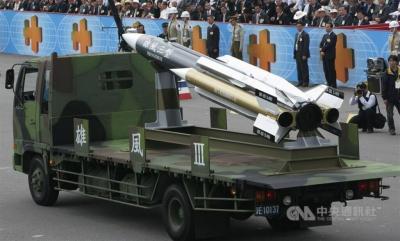The government’s free economic pilot zones (FEPZs) project is an “empty” policy that showcases the fundamental error that President Ma Ying-jeou’s (馬英九) administration has made in its move to revive the nation’s economy, Democratic Progressive Party Chairperson Tsai Ing-wen (蔡英文) said yesterday in Greater Taichung.
“The FEPZ project could serve as a policy tool and a supplementary measure to stimulate the domestic economy, but it should be goal-oriented and selective,” Tsai said in her opening remarks at a party policy meeting aimed at discussing key agenda for the extra legislative session that begins on Friday.
In a nutshell, Tsai said the project, which aims to attract foreign — in particular Chinese — investments, lacks substance and is only focused on deregulation and further market opening.
The policy aims to set up free economic pilot zones in Keelung Port, Suao Port in Yilan County, Taipei Port, Taichung Port, Anping Port in Greater Tainan, Kaohsiung Port, the Taoyuan Aerotropolis in Taoyuan County and the Pingtung Agricultural Biotechnology Park to serve as models for business convenience and liberalization.
However, not only was the plan hastily drafted, but it would also invest a planned administrative authority with too much power — including environmental protection, labor affairs, construction, commercial registration, licensing, taxation and personnel — without regard for national security and its environmental impact, Tsai said.
Moreover, the planning for various sectors are questionable, Tsai said, adding that liberalizing Chinese agricultural imports would be a grave mistake.
“The DPP argues that the grand strategy for Taiwan’s economy should be promoting industrial upgrading and transformation, and developing several core industries with national resources, not encouraging the establishment of FEPZs across the country,” she said.
The DPP also reached a consensus on two issues on the first day of the two-day meeting, which brought together party officials and more than 20 lawmakers to discuss policies and a unified position for the extra legislative session.
On the reviews of nominees for the Control Yuan and Examination Yuan, DPP Secretary-General Joseph Wu (吳釗燮) said the party would try to resolve the issue on several fronts, including proposing an amendment to reduce the number of Examination Yuan members and a constitutional amendment to eliminate the two branches of government.
With regards to the monitoring mechanism for cross-strait agreements, Wu said the DPP would submit its own version to rival the Chinese Nationalist Party’s (KMT) and insist on a clause-by-clause screening.
The extra session could be “the toughest extra session in history” because the KMT might try to push through several major legislations and policies, DPP caucus whip Ker Chien-ming (柯建銘) said, adding that it might take more than two extra sessions to handle those agenda.
Mayors and commissioners of DPP-governed administrative zones or their deputies are expected to join the meeting today to discuss the cross-strait service trade agreement and the pilot zones — a pair of thorny yet important issues awaiting to be resolved in the legislature.

STATS: Taiwan’s average life expectancy of 80.77 years was lower than that of Japan, Singapore and South Korea, but higher than in China, Malaysia and Indonesia Taiwan’s average life expectancy last year increased to 80.77 years, but was still not back to its pre-COVID-19 pandemic peak of 81.32 years in 2020, the Ministry of the Interior said yesterday. The average life expectancy last year increased the 0.54 years from 2023, the ministry said in a statement. For men and women, the average life expectancy last year was 77.42 years and 84.30 years respectively, up 0.48 years and 0.56 years from the previous year. Taiwan’s average life expectancy peaked at 81.32 years in 2020, as the nation was relatively unaffected by the pandemic that year. The metric

Taiwan High Speed Rail Corp. (THSRC) plans to ease strained capacity during peak hours by introducing new fare rules restricting passengers traveling without reserved seats in 2026, company Chairman Shih Che (史哲) said Wednesday. THSRC needs to tackle its capacity issue because there have been several occasions where passengers holding tickets with reserved seats did not make it onto their train in stations packed with individuals traveling without a reserved seat, Shih told reporters in a joint interview in Taipei. Non-reserved seats allow travelers maximum flexibility, but it has led to issues relating to quality of service and safety concerns, especially during

A magnitude 5.1 earthquake struck Chiayi County at 4:37pm today, the Central Weather Administration (CWA) said. The hypocenter was 36.3km southeast of Chiayi County Hall at a depth of 10.4km, CWA data showed. There were no immediate reports of damage resulting from the quake. The intensity of the quake, which gauges the actual effect of a seismic event, measured 4 in Chiayi County, Tainan and Kaohsiung on Taiwan's seven-tier intensity scale, the data showed. The quake had an intensity of 3 in Chiayi City and Yunlin County, while it was measured as 2 in Pingtung, Taitung, Hualien, Changhua, Nantou and Penghu counties, the data

The Supreme Court today rejected an appeal filed by former Air Force officer Shih Chun-cheng (史濬程), convicted of Chinese Communist Party (CCP) espionage, finalizing his sentence at two years and two months for contravening the National Security Act (國家安全法). His other ruling, a ten-month sentence for an additional contravention, was meanwhile overturned and sent to the Taichung branch of the High Court for retrial, the Supreme Court said today. Prosecutors have been notified as Shih is considered a flight risk. Shih was recruited by Chinese Communist Party (CCP) intelligence officials after his retirement in 2008 and appointed as a supervisor